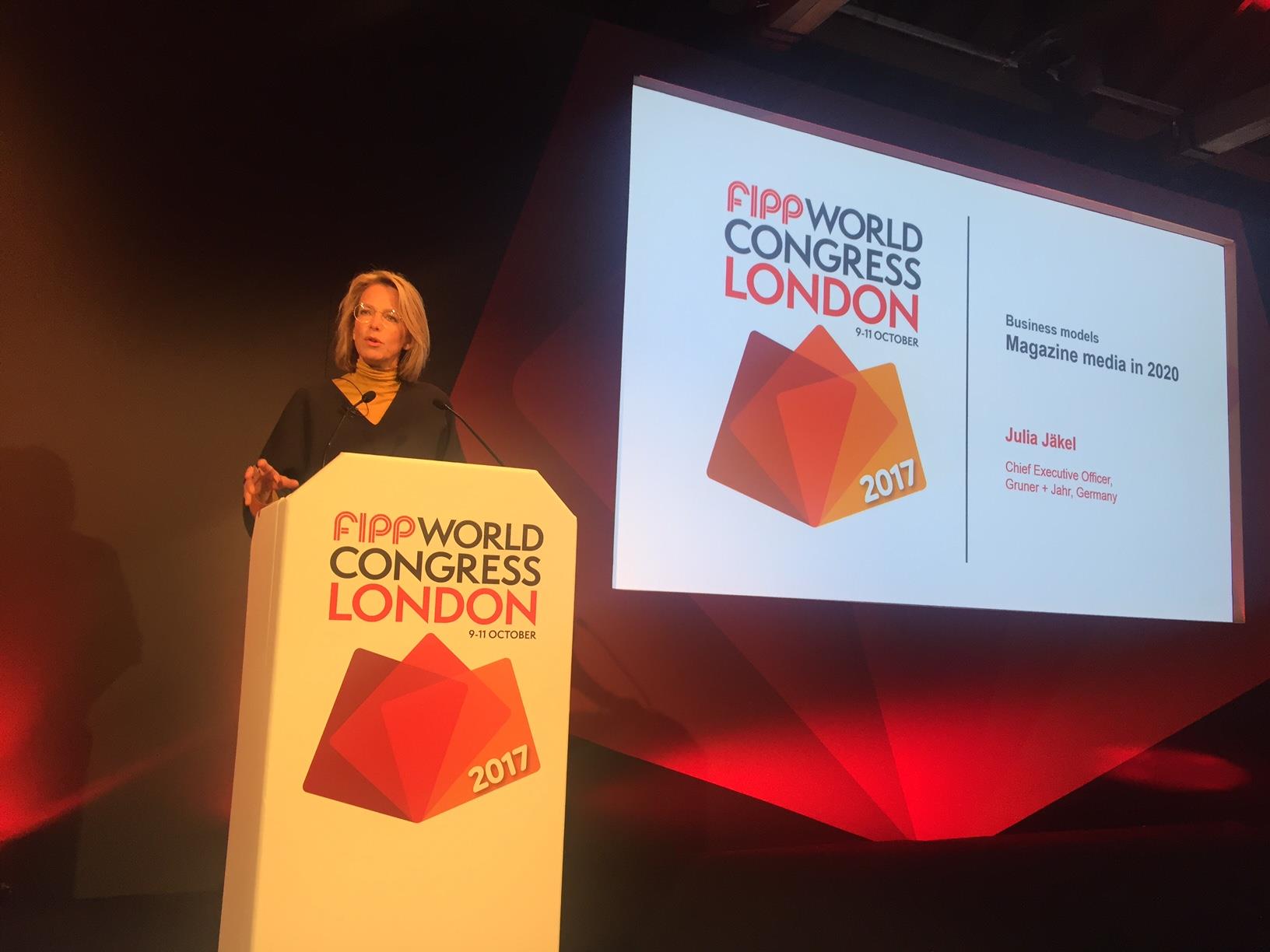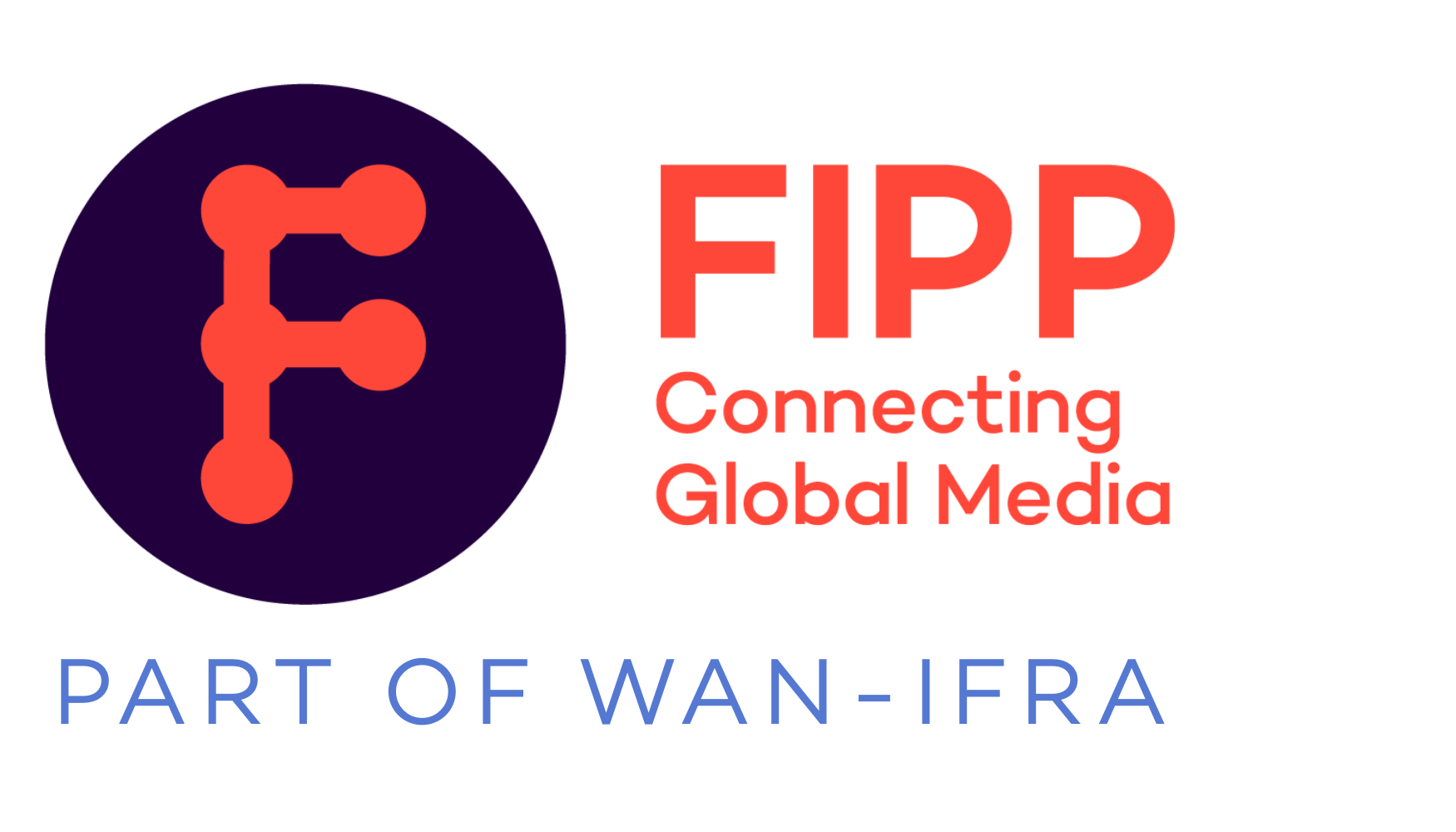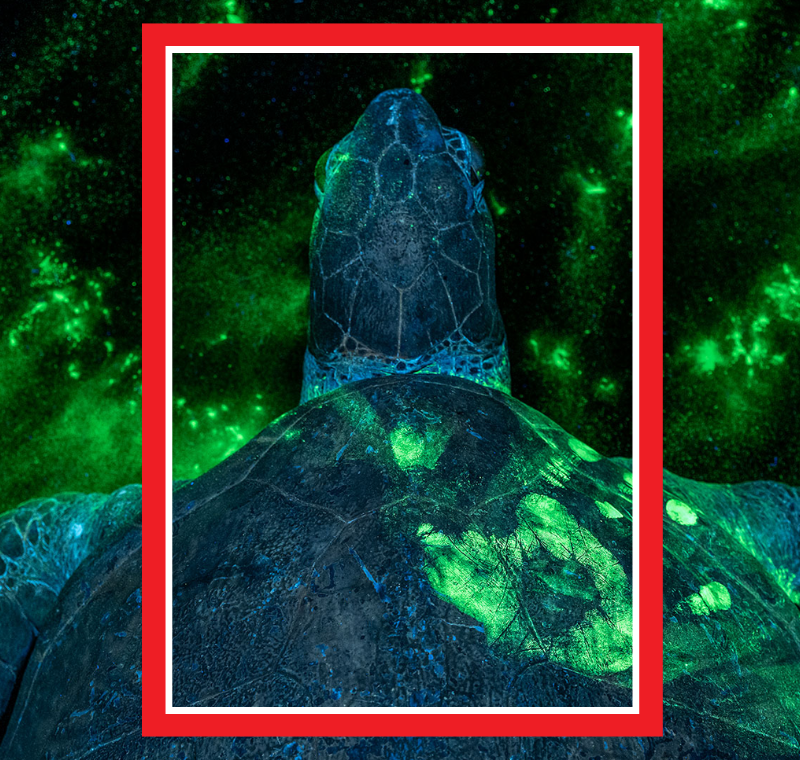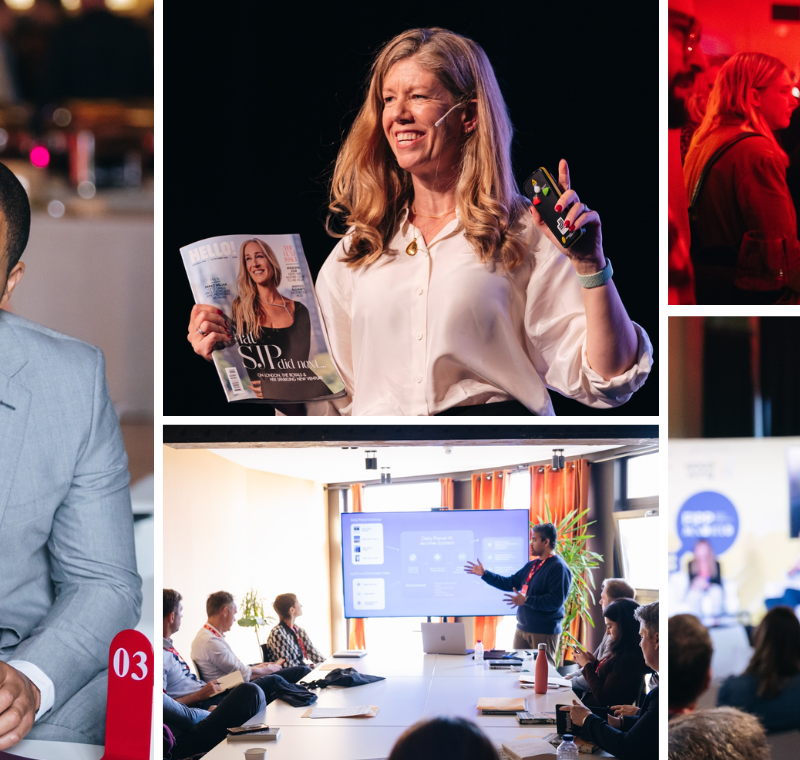G+J CEO shares seven top lessons for success

Gruner + Jahr, one of the biggest media companies in Europe, focuses on Germany and France. Twenty-five per cent of their business is digital and they’ve been growing rapidly over the last four years.
“Our approach is global,” Jäkel said. “And most importantly, we believe in the power of creativity and innovation.”
Over the last four years, Jäkel oversaw a complete transformation of Gruner +Jahr. Over that time, the company changed fundamentally, she explained. “It caused confusion, and our way seemed shaky and foggy. We had a rough start,” she said.
But, gradually, things started to come together, and Jäkel shared seven insights that she’d learned and observed over her company’s transformation process. “Strategy is good and attentiveness is better,” she said. Their strategy had two pillars: they wanted to be the most exciting and innovative magazine publisher, and they wanted to grow their digital business.
Jäkel’s second insight was that magazines are media products for a digital society. Gruner + Jahr were creating media products for a digital world, these were both digital products and print products. “In the last three years, we’ve launched 25 new magazines in Germany,” she said.
One of those was Hygge, taking the Danish word that describes coziness, to another level, delivering content on simple pleasures, and another was Crime, which focused on in-depth stories on true crime. These days, more than 30 per cent of Gruner + Jahr’s titles are less than 10 years-old.
Gruner + Jahr’s transformation also benefitted their financial development. “Our publishing model is ad-based… today, one fourth of our revenues is digital,” Jäkel said.
Jäkel’s next insight suggested that size matters. “Size maters, but don’t be too corporate,” she explained. “Decades of our success makes our industry complacent. At G&J, we knew we wanted to change, and we wanted to be a good partner. We wanted to be a company that was creative, competent, reliable and fun to work with.”
Three years ago, they began a ground-breaking ad alliance with a television network, something that would have been unheard of in previous decades. Through the alliance, they reach 99 per cent of the population in Germany. “TV and magazines weren’t doing partnerships three years ago, but we realised we have so much in common and we both needed to counter the Facebooks, the Amazons of the world,” Jäkel said.
Creativity needs the right atmosphere. “People often ask me, what’s your process? How to you organise innovation?” Jäkel said. “We’ve set up a proof of concept lab, where we test prototypes and business models there before we invest.”
Jäkel outlined that they’ve tested 20 + projects. “We have instruments to promote innovations, but there is no structured process to innovation,” she explained. “And creativity can’t be forced. It’s culture, people, open-mindedness and courage. It has a lot to do with trust.”
To wrap up the presentation, Jäkel outlined two more insights that helped her company achieve digital transformation and success. “Good women attract progressive men,” she said. “Our publishing house depends on creativity, and creativity depends on diversity. Forty-eight per cent of our management is male, 52 per cent are female. That happened by trusting in the strengths and talent of our company.”
Strategy is important to companies looking for make a digital transformation like Gruner + Jahr. In times where there is change and uncertainty, Jäkel said publishers need to be on the ball and ready to move. “You need to need to go your own way,” she said. “When we started this journey, people asked us, is your strategy disruptive enough? It was tough to resist the cry for disruption. We understood and recognised how lucky we were to have a wide, strong portfolio of brands, which helped us develop the company into the future. I think we all need to find our own way.”
More like this
When opposites are ‘brilliantly successful’ in publishing
Building B2C and B2B subscription revenues into the dominant revenue stream
Setting up a formal marketplace for drone content
The value of evergreen content in building a content to commerce offering



![[New!] FIPP Global AI in Media Tracker – November 2025](https://www.fipp.com/wp-content/uploads/2025/06/articles-header-800x760.png)




